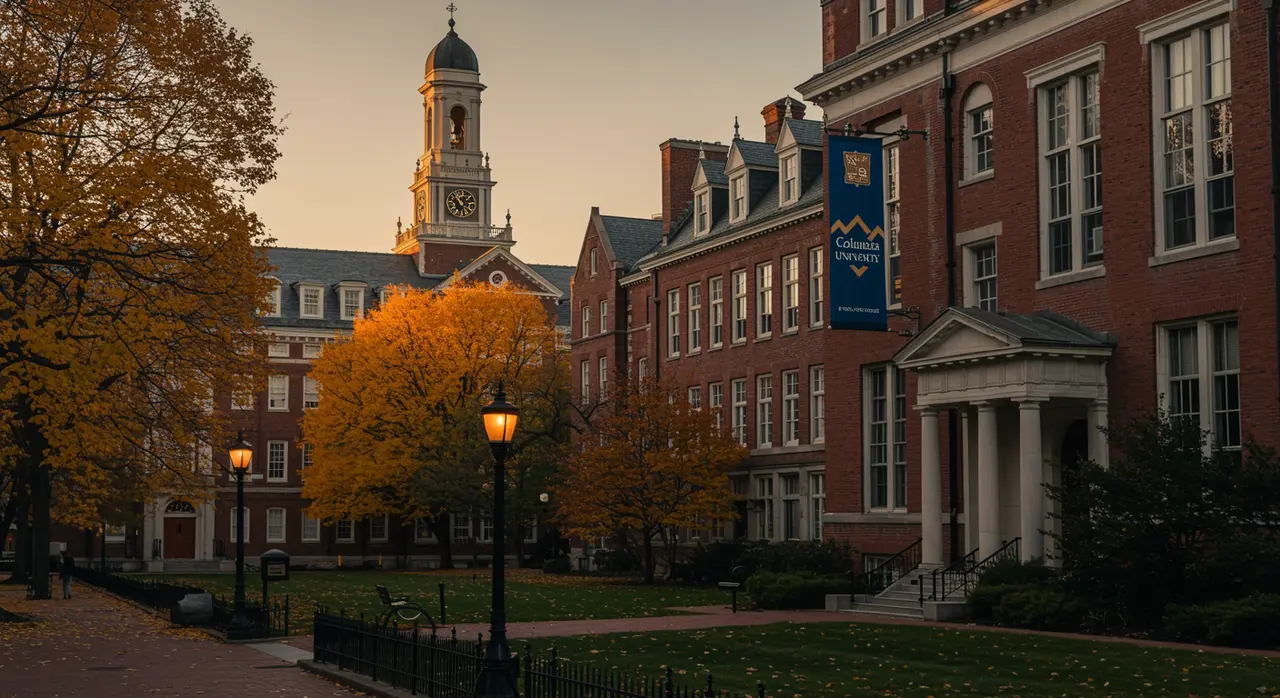Trump Administrations Funding Cuts Threaten Research Powerhouses Like Johns Hopkins and Columbia
354 views
U.S. colleges and universities find themselves navigating a precarious financial landscape as federal funding, a lifeline for research and academic programs, faces unprecedented uncertainty under the Trump administration. With sweeping cuts to grants and contracts, as well as new enforcement tactics tying financial support to compliance with administration policies, institutions are grappling with the fallout. Prestigious research universities like Johns Hopkins and Columbia are particularly vulnerable, as funding reductions ripple through their budgets, affecting everything from graduate admissions to groundbreaking scientific research.

The Fallout of Federal Funding Cuts: A Crisis for Higher Education
For decades, federal funding has served as the backbone of the American higher education system, enabling universities to conduct essential research in fields ranging from medicine to defense. Institutions like Johns Hopkins University, which received $4 billion in federal grants last year alone, have relied heavily on this support, often using it to fuel advancements in areas critical to national interests. Yet, the Trump administration’s approach to funding—characterized by abrupt cuts and punitive measures—has left schools scrambling to adapt.
Johns Hopkins, renowned for its contributions to medical and defense research, has already begun to feel the sting. Layoffs have been announced as the university struggles to offset the loss of federal dollars. The consequences of these cuts extend far beyond campus walls, threatening the very research that underpins public health initiatives and national security. With funding reductions looming large, the university’s ability to maintain its standing as a global research leader hangs in the balance.
Columbia University, meanwhile, finds itself entangled in a different kind of battle. Accusations of antisemitism on campus prompted the Trump administration to pressure the institution into revising its policies, withholding federal funds until compliance was achieved. This move has sparked heated debates about academic freedom, as critics argue that the administration’s tactics amount to intimidation. Columbia’s plight underscores a broader shift in the federal government’s approach to civil rights enforcement in higher education, where swift penalties have replaced traditional legal processes, leaving universities with little room for negotiation or due process.
The ripple effects of these funding uncertainties are being felt across the academic spectrum. Graduate programs, long dependent on federal grants to sustain admissions and research opportunities, are scaling back. Some universities have been forced to limit the number of graduate students they accept, citing the instability of federal support. For aspiring researchers, the implications are clear: fewer opportunities to pursue advanced degrees and contribute to fields that rely on academic innovation.
A Fractured Compact: The Future of Research and Academic Freedom
The Trump administration’s actions have sparked broader concerns about the fragile compact between the federal government and higher education institutions. Traditionally, this relationship has been built on mutual trust and shared goals, with universities serving as hubs of scientific and medical advancement supported by public funding. Yet, the administration’s aggressive tactics—tying financial support to policy compliance and bypassing traditional legal channels—threaten to undermine this partnership.
Critics warn that these measures could have long-term consequences for the nation’s scientific and academic landscape. By reducing funding for research institutions, the administration risks stifling innovation in fields that depend on sustained investment. Medical breakthroughs, technological advancements, and defense strategies—all of which rely on the expertise cultivated within universities—could be jeopardized. Moreover, the erosion of academic freedom raises questions about the ability of institutions to serve as independent centers of thought and inquiry.
The impact is not limited to the universities themselves. Students, too, are being forced to reconsider their priorities and career paths in light of the changing funding landscape. With fewer opportunities for research and graduate study, many are turning away from academic careers in favor of more stable prospects. This shift could have profound implications for the future of American higher education, as the pipeline of young scholars and researchers begins to narrow.
Yet, even amidst the uncertainty, there are glimmers of resilience. Some universities are exploring alternative funding models, seeking partnerships with private organizations and philanthropic donors to offset the loss of federal dollars. Others are doubling down on their commitment to academic freedom, refusing to bow to external pressures despite the financial risks. These efforts, though commendable, highlight the growing divide between institutions that can afford to adapt and those that cannot.
A Reflection on the Road Ahead
The challenges facing U.S. colleges and universities under the Trump administration’s funding policies are emblematic of a broader struggle over the role of higher education in society. At its core, this crisis raises fundamental questions about the values that underpin academic institutions: independence, innovation, and the pursuit of knowledge. As federal support becomes increasingly conditional, institutions must grapple with the delicate balance between compliance and autonomy.
For students, researchers, and educators, the stakes could not be higher. The uncertainty surrounding federal funding threatens to reshape the academic landscape, narrowing opportunities and curbing ambitions. Yet, it also serves as a call to action—a reminder of the importance of safeguarding the integrity of higher education against external pressures.
As universities chart their path forward, they must confront the realities of a shifting funding paradigm while remaining steadfast in their commitment to the ideals that define academia. Whether through new partnerships, creative solutions, or collective advocacy, the road ahead will require resilience and ingenuity. In the face of adversity, the enduring spirit of higher education may yet prevail, ensuring that the pursuit of knowledge continues to thrive in a world of uncertainty.